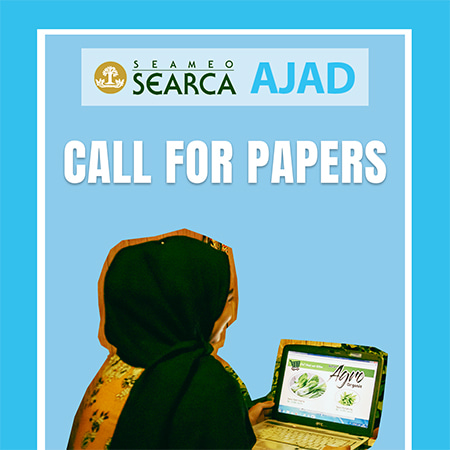- Paperback 1908-6164
- e-ISSN 2599-3895
O Lam Commune in Tri Ton District, An Giang Province in Vietnam experiences serious water shortages all year round, especially in the dry season. Moreover, owing to its mountainous topography, the local people, especially women, face numerous challenges in accessing water for domestic use. Unfortunately, although women are globally considered the main actors in water management, they are often excluded from planning, formulating, and implementing management policies. This study, therefore, examined gender issues in relation to water use and management of Khmer men and women in four villages of O Lam Commune. Interviews, focus group discussions, and Participatory Rural Appraisal tools were conducted in Phuoc Loc, Phuoc Loi, Phuoc Tho, and Phuoc Long villages. The results reveal the relationship between gender roles and the physical environment, particularly upland rice farming systems. Women primarily manage water in the household; consequently, lack of access to water affects them more significantly than men.
Furthermore, since they travel longer distances and carry heavy loads of water, they spend more time collecting water. This reduces the time they have to fulfill their reproductive roles and partake in income-generating activities. In addition, women face several barriers that limit their participation in decision-making in water management projects. These barriers include traditional norms that assign and expect men to be the dominant decision makers; high illiteracy levels among women; and women’s lack of time to participate in water-related project activities due to their reproductive and productive roles, such as labor inputs in agriculture. This study recommends that water-related policies and projects should ensure gender equality in increasing access to water resources and building capacity training programs. Women’s participation in water-related activities will enhance their knowledge and provide them with various platforms to share their perspectives on water use and management.
Download for free
PDF format in this language: English


